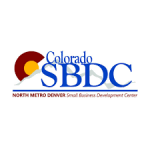Featuring John Henry, SBDC Lead Consultant
Writing a Business Plan
A fresh start is right around the corner and what better way to kick-off 2022 than with the launch of your business? January is a convenient time to officially start your business for bookkeeping and tax considerations, but before you get too far ahead of yourself you’ll want to make sure you have a solid business plan. Writing a business plan can feel daunting and overwhelming, but the SBDC is here to provide you with resources and support to help you through the process step by step.
John Henry, a lead SBDC consultant, works with clients each week to develop and refine their business plans. After a successful career in management, operational planning, and start-ups, John took to teaching these skills to students and business owners. He recently presented a helpful webinar, How to Write a Business Plan. Read on for his best advice to small business owners writing their first business plan.
Is a Business Plan Really That Important?

What Goes into a Business Plan?
1. Company Description
This is the place to provide detailed information about your company like your mission statement, problems your business solves, who your customers are, what your credibility is, etc.
2. Service or Product Line
This is where you describe what you sell or what service you offer. You’ll want to include how it benefits your customers, what your competitive advantage is, and any associated intellectual property.
3. Market Analysis
You’ll need a good understanding of your industry outlook and target market. Don’t forget to research your competitors and partners as well as your customers.

4. Organization and Management
How will your company be structured? This is where you will describe the legal structure (LLC, S-Corp, etc.) This is also where you will describe your operating plan which should include an organization chart, how you create and deliver your products/services, your location and hours of operation, as well as suppliers and outside help.
5. Marketing and Sales
This step is important for funders to see and will also help you develop your specific marketing strategy. Here you should describe how you will attract and retain customers and what your ideal target customer is. Your marketing approach will include a variety of different touch points like your website, social media, print material, direct marketing, public relations, and events.
6. Financial Projections
Finally, we get to the financial projections. This is where you will show that your business is more than just a great idea, that it is also financially viable and financially sustainable. Your financial projections will supplement your funding request (the amount of funding and terms you are requesting).
If you are just starting out, you’ll want to create a start-up expense schedule to show how much money you need to get through the first year. You want to be as specific as possible, so use quarterly or even monthly projections of expenses and income. If you have been in business already, you will include your income statements, balance sheets, and cash flow statements for the last 3-5 years, as well as projections for the next 3-5 years.
Where Can I Go for Help?
Writing your business plan is a process, but there are several resources to help you along the journey. In addition to the SBA’s resources linked above you can access free market research support through the Denver Public Library’s Bizboost program and meet with a Business Librarian. And of course, you can always schedule an appointment with John for guidance and support as you work through your business plan.

About the Author:
After 14 years at United Parcel Service covering assignments from delivery driver to division manager, John was recruited by FedEx to join the team that drafted the initial operation plan which served a 25 city network. Over the next 13 years he was responsible for the development of several key managers accountable for budgets in excess of $140 million. As Managing Director of Canada his team was responsible for the simultaneous opening of ground operations and airline interface facilities in nine cities across the country. This coupled with the role he played in the U.S startup, along with similar assignments while at UPS, sharpened and tested his organizational and planning skills. As if that wasn’t enough, he took on the challenge of founder/owner of Transamerican Couriers Ltd., a local courier company engaged in same day and next day services along the Front Range.
For the last 25 years he has been teaching business and management courses, including Small Business Management, at Front Range Community College. During that span he has provided guidance, counseling and experience sharing with many students in their pursuit of careers in the business community.
John’s areas of expertise include:
- Start Ups
- Strategic Planning
- Operations Analysis
- Leadership Development
- Cash/Cost Management
- Industrial Engineering










